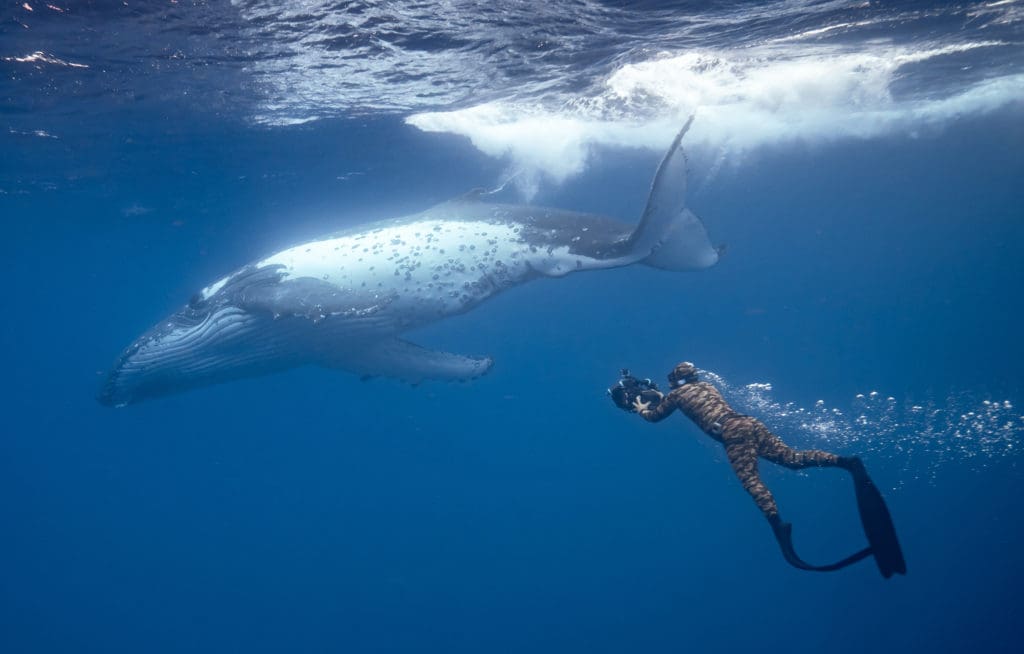
Paul Watson is a controversial figure. A founding member of Greenpeace who accompanied the organization to protest nuclear testing in Amchitka in the ’70s, he is now the CEO of Sea Shepherd, a group of environmental activists whose confrontational methods have led them to be condemned by Greenpeace as eco-terrorists and given Watson an Interpol Red Notice. It’s impressive then, that director Lesley Chilcott’s new documentary Watson, manages to not only give a comprehensive view of the Canadian-American’s activist’s life, but make it easy to sympathize with him.
In part, Chilcott can do that because much of the archival footage she uses comes from Watson’s own archives. A communications student in college, Watson says his approach to media was greatly influenced by a speech he heard Canadian philosopher, Marshall McLuhan give about TV. To his mind, “hot media” like television is the best way to galvanize people on controversial subjects, and he and the organizations he’s worked with seem to have compulsively filmed everything. As he succinctly puts it, his approach to getting his actions in the media are driven by “sex, scandal, violence and celebrity.”
While video of Watson sitting next to Brigitte Bardot covers the first and last aspects, most of the footage we see is about scandal and violence. We see early Greenpeace footage of a Soviet whaling fleet literally firing a missile at a whale. And we see contemporary footage of fishers cutting the fins off live sharks and throwing the mutilated bodies back into the water so the sharks can slowly die at the sea floor. Like the above examples, a lot of the footage is frankly disturbing and after so much of it, it can be easy to forget that much of what Watson has done throughout his career is illegal. Who cares if laws are broken when it’s so satisfying to watch Watson and crew ram an illegal whaling vessel?

Still, much as Chilcott’s film is clearly helped by her access to Watson’s archive, it wouldn’t be quite so effective if she didn’t know how to use it. Indeed, some of the film’s most convincing passages don’t use Greenpeace or Sea Shepherd footage at all. While opening images of a pod of sperm whales sleeping vertically are haunting in their odd beauty, it’s a section on sharks that’s one of the film’s most memorable. As we watch sharks glide through water, in voice over, Watson says that their movements are so beautiful that you can almost hear classical music playing while watching them. Chilcott was already playing classical music on the soundtrack, but it suddenly swells and the juxtaposition is so beautiful that it makes the smash cut to a dead shark caught on a line, and the discussion of how inhumane shark fin harvesting is, that much more brutal.
Here and throughout, Chilcott’s filmmaking is simply so excellent that it makes it easy to forget how narrow the film’s perspective actually is. As the title indicates, Watson is the film’s subject–not conservation per se–and Chilcott leaves his perspective largely unquestioned as a result. When Costa Rica and Japan get Interpol to give him a Red Notice, he characterizes it as essentially a frame-up job meant to keep him off the water. When colleague and captain of the Ady Gil, Pete Bethune is indicted in Japan and, as he later confesses, lies to say Watson told him to board a Japanese whaling vessel, we see no new footage of Bethune, just his original public statement.
However, while Watson would benefit from being more willing to challenge the self-proclaimed eco-terrorist at its heart, the environmental truths that drive his actions are hard to question. As a few final title cards state, 90% of the world’s fish stock is some level of overexploited and a single blue fin tuna recently sold for $3.1 million. Conservationists may disagree about how to protect our sea life, but Watson is right when he says the oceans are Earth’s “life support system” and if that goes, so do we.

